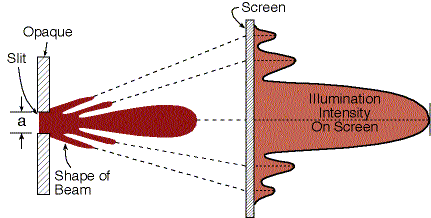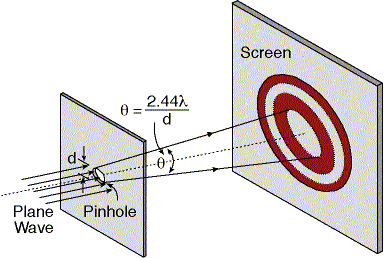
Figure 7.9: Single Slit Diffraction.
It is easy to compare diffraction through small hole to single slit diffraction.
In a single slit diffraction there is one dimension in which diffraction occurs, since the slit is narrow only in one dimension (see figure 7.9).

When a parallel beam (plan wave) hit a small hole, a series of bright and dark rings appear on the screen (see figure 7.10).

The number of rings, and their relative intensities depends on the hole diameter and its distance from the screen.
At the center of the screen there is a circular spot of light that contains about 84% of the light that pass through the hole.
Measuring the divergence angle of a plan wave after passing through a small hole is done by measuring the diameter of the first dark ring:
In the laboratory experiments you can find instructions for performing diffraction through a small hole.